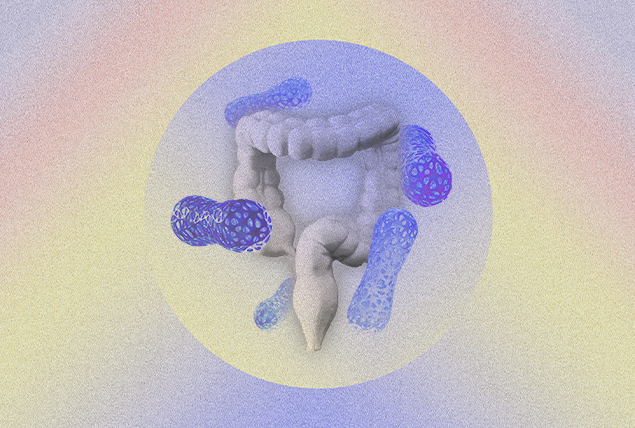Gut Microbiome Appears to Play a Role in Endometriosis

About 1 in 10 women experience endometriosis, a disease that causes tissue similar to the lining of the uterus to go rogue by growing in other parts of the body. Its hallmarks are intense pain and, in some cases, infertility and bowel problems. Little is known about what causes endometriosis, or why some people may be more susceptible than others, but mounting research has suggested a person's gut microbiome may play a role.
Endometriosis and the gut
Currently, little is understood about the connection between gut bacteria and endometriosis, said Rama Kommagani, Ph.D., an associate professor of pathology and immunology, and molecular virology and microbiology at Baylor College of Medicine in Houston.
He noted endometrial lesions often grow on the peritoneal cavity on top of the ovary, which is close to the gut.
"Many women with endometriosis have bowel issues, which are associated with gut health," Kommagani said.
Bowel issues associated with endometriosis include constipation and inflammatory bowel disease (IBD), he noted.
Another reason researchers suspect a link between the disease and gut bacteria: "70 percent of the whole microbiome in the human body primarily resides in the gut," Kommagani said.
Recently, Kommagani and researchers at Baylor and Washington University School of Medicine in St. Louis demonstrated a clear, causal link between altered gut bacteria and the formation and growth of endometriosis. In a study published on Jan. 25, scientists found altered gut microbiota may drive the progression of endometriosis in mice.
About the research
For their study, Kommagani and his team used control mice and mice who had been given broad-spectrum antibiotics to deplete their microbiota. They induced both groups of mice with endometriosis.
The scientists found endometriosis growths in the microbiota-depleted mice were significantly smaller and fewer than growths in the control group.
Then researchers administered feces from mice with endometriosis and feces from healthy mice to the microbiota-depleted rodents with induced endometriosis. The microbiota-depleted mice who received fecal matter from mice with endometriosis grew typical endometriosis lesions, while microbiota-depleted mice who received fecal matter from healthy mice did not.
"We clearly demonstrated that bacteria that resides in our body plays a causal role in endometriosis," Kommagani said. "If there are any changes in this bacteria adversely, it impacts the diseases."
While the gut microbiome may play an important role in endometriosis progression, the researchers found no link between the uterine microbiome and the condition, he said.
The research team also determined that microbiome-derived metabolites—products generated by bacteria—were significantly altered in the stool samples of mice with endometriosis.
The researchers fed quinic acid, a metabolite present at high levels in the feces of mice with endometriosis, to mice with endometriosis. They found mice with endometriosis that were fed quinic acid had enhanced cellular proliferation and grew larger lesions, demonstrating how microbiome metabolites may actually promote disease progression, Kommagani said.
What this means for endometriosis
"An in-depth study focusing on the specific microbiota or associated metabolites in endometriosis-associated inflammation in the context of human endometriosis patients will be next on our agenda," the researchers wrote.
Already, Kommagani and his fellow researchers are analyzing metabolites in human fecal samples to identify any similar trends in the metabolites of people with endometriosis.
"Since we found metabolites are altered in the stool sample of mice, if all of this could be translated to humans, maybe we could have a diagnostic tool for endometriosis," he said.
Currently, there are no noninvasive methods to diagnose endometriosis. The disease often goes undetected for anywhere from four to 11 years before diagnosis.
Based on the new research, Kommagani hopes medical professionals may one day be able to use stool samples to detect the possibility of endometriosis, helping patients get diagnosed sooner.


















